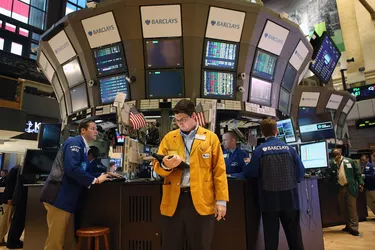
Before a stock can be publicly traded, it has to be listed on a stock exchange like the New York Stock Exchange (NYSE) or the American Stock Exchange (AMEX). To be listed, companies must meet certain standards established by each particular exchange. The AMEX, for example, currently has four distinct standards for companies to choose and gain listing. Since the merger with the NYSE, the AMEX has been known as NYSE Amex Equities and specializes in trading small and micro cap stocks.
Standard 1
Video of the Day
The AMEX requires companies to have $750,000 in pre-tax income in the two most recent fiscal years. In addition, the minimum price of its stock must be $3 and public float must have a market value of $3 million. Public float refers to shares of stock owned by the public and not by company directors, officers or controlling interest investors. In total, the company's shareholder equity must be at least $4 million.
Video of the Day
Standard 2
Similar to standard 1, the company must have a stock price of at least $3. However, the company does not have to meet income requirements. Therefore, a company can make any amount of money to gain listing on the AMEX as long as it meets the other criteria in standard 2. In addition, its public float must be at least $15 million with at least $4 million in shareholder equity. Shareholder equity is the net worth of the company--that is, the difference between assets and liabilities. Lastly, AMEX requires companies to provide at least two years of operating history.
Standard 3
Under this standard, the company needs to meet a minimum of $50 million in market capitalization. Market capitalization refers to the market price of the entire company. This is calculated by multiplying the number of shares in investor hands by the market price of the stock. Similar to standards 1 and 2, the company must meet a minimum $15 million market value public float and a minimum of $4 million in shareholder equity. Lastly, its share price must be at least $2.
Standard 4
The fourth standard has the highest monetary requirements of all standards. In this case, the company must have either $75 million in market capitalization or at least $75 million in revenue and $75 million in assets. In addition, the public float must have a minimum value of $20 million with a share price of at least $2.